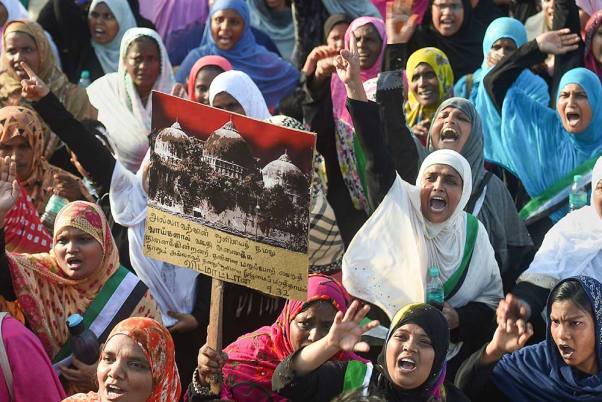
The crime unit of Hyderabad Police has re-registered a case of sedition against two women from Saidabad in a case that was registered in November last year. The Special investigation Team of Central Crime Station has registered the case in order to proceed with investigation on charges of sedition.
The two women Shabista and Zille Huma had organised a special congregation called Qunoot-e-Nazilah last year in November after the Supreme Court’s verdict came out in the Ayodhya land dispute case. Qunoot – e – Naazilah, in Islam, is a prayer to Allah for mercy and benevolence in times of extreme distress or calamity.
The case for sedition was registered in November 2019 after sub-Inspector Din Dayal Singh of Saidabad Police went through some videos of the congregation and also accused them of promoting enmity on grounds of religion. The Wire reported that they were also accused of attacking policemen at Saidabad police station and a non-bailable warrant is pending against them.
This move comes at the heels of the August 5 foundation laying event that took place in Ayodhya as a first step towards construction of the Ram temple in accordance with the Supreme Court’s verdict.
News reports these days are rife with charges of sedition being invoked against people, in many cases simply for raising questions against the government. Sedition is an offence under section 124A of the Indian Penal Code which reads as follows:
Whoever by words, either spoken or written, or by signs, or by visible representation, or otherwise, brings or attempts to bring into hatred or contempt, or excites or attempts to excite disaffection towards, the Government established by law in India, a shall be punished with imprisonment for life, to which fine may be added, or with imprisonment which may extend to three years, to which fine may be added, or with fine.
The Supreme Court constitution bench in Kedarnath Singh v. State of Bihar held that “every citizen has a right to say or write about the government, by way of criticism or comment, as long as it does not “incite people to violence” against the government established by law or with the intention of creating public disorder.”
The Bombay High Court in 2015 while considering a PIL on arbitrary application of sedition, referred to the Kedarnath judgement and opined that there was a need to lay down parameters for the invocation of Section 124A, stating, “Otherwise a situation would result in which an unrestricted recourse to Section 124A would result in a serious encroachment of guarantee of personal liberty conferred upon every citizen of a free society.”
The charge of sedition is regarded as one of the most misused penal provisions in India in recent times when people are being booked for merely speaking up against the government and is used as a tool for crushing dissent.
Related:
Remember when Rajasthan Gov Kalraj Mishra protested at UP Raj Bhavan?
100 days and counting, free Gulfisha Fatima: Activists
Why is the Ashok Gehlot Govt invoking Sedition law in Rajasthan?